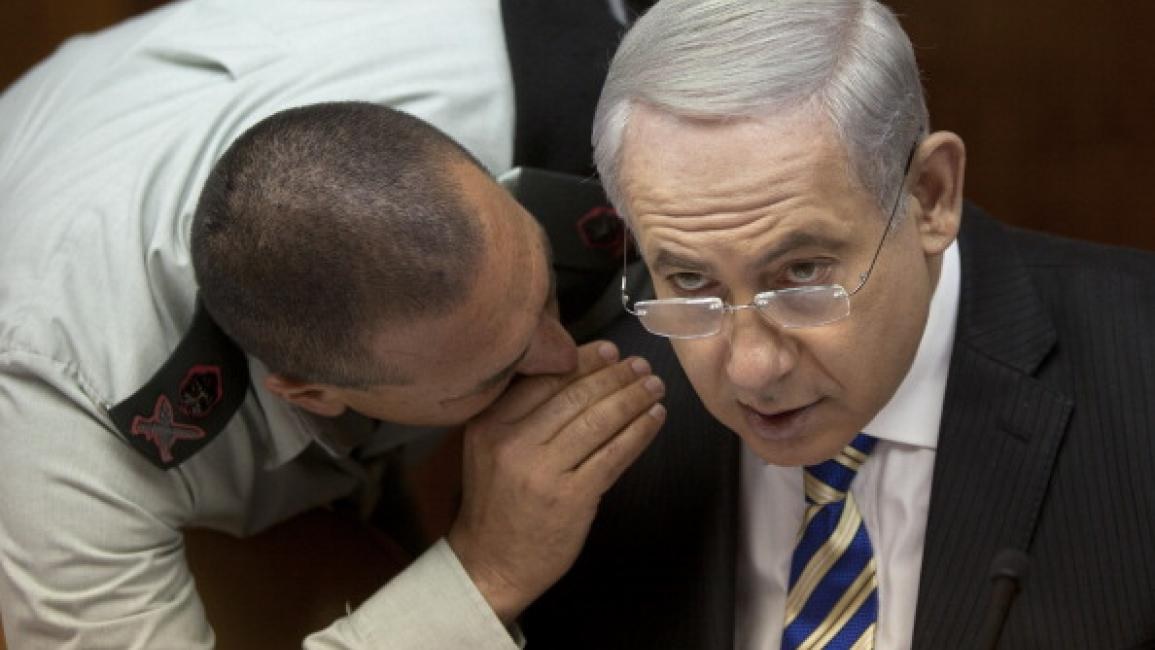New Israeli Army Chief Aligns with Netanyahu, Blocks Inquiry into October 7 Failures
Eyal Zamir reverses key military policies, supports Netanyahu’s stance against an official inquiry, and allows the Israeli army to distribute aid in Gaza—shielding the government from accountability.

Watan-Israel’s new Chief of Staff, Eyal Zamir, has been closely aligning himself with Prime Minister Benjamin Netanyahu, particularly regarding the genocidal war on Gaza, Israel’s investigation into the October 7 failure, and military restructuring since assuming office just days ago.
Zamir has begun reversing several key decisions made by his predecessor, Herzi Halevi, including:
- Approving the Israeli army’s involvement in distributing humanitarian aid in Gaza.
- Refusing to push for an official commission of inquiry into the October 7 failures.
By blocking an official inquiry, Zamir is protecting Netanyahu and his government from being held accountable for their role in the security failures of October 7.
Zamir Approves Military Role in Humanitarian Aid Distribution
According to a report by Israel’s Channel 12 on Thursday, Zamir has informed Israel’s political leadership that he will implement a major policy shift on one of the most controversial issues between Israel’s political and military leadership over the past year and a half:
The Israeli military will now be allowed to either facilitate or directly handle humanitarian aid distribution in Gaza.
Former Chief of Staff Herzi Halevi had strongly opposed this, fearing it could be interpreted as military rule over Gaza or a precursor to full Israeli military control. His stance had full backing from former Defense Minister Yoav Gallant.
According to Channel 12, the new plan involves an American company managing aid distribution, but if it fails, the Israeli military will take over the task itself.

Zamir Hands Over Sensitive October 7 Files, Weakening Calls for Inquiry
A report by Haaretz revealed that Zamir has agreed to hand over sensitive files related to the October 7 security failures to State Comptroller Matanyahu Englman.
His predecessor, Herzi Halevi, had refused to share these documents, arguing that any critique of the military should wait until after the war.
Last year, tensions flared between Halevi and the state comptroller over the issue. Halevi insisted that:“The failures of October 7 should only be examined by an official state inquiry, not an internal investigation,”
— a committee that Netanyahu’s government refuses to establish.
During Zamir’s swearing-in ceremony, Halevi publicly declared:”An official inquiry is both necessary and vital.”
However, sources close to Zamir told Haaretz that:”Zamir is not committed to an official inquiry. He appears hesitant and seems to prefer relying on the State Comptroller’s review instead.”
Englman and Zamir have since held multiple meetings, agreeing to investigate:
- The Israeli army’s conduct before October 7
- The role of the Military Intelligence Directorate
- The Southern Command’s preparedness

Zamir’s Internal Military Investigation Sparks Controversy
Zamir’s decision to launch an internal military review of the failures that led to Hamas’s attack has drawn criticism within the army.
Senior security officials argue that this move shifts attention away from Netanyahu’s political failures and reduces pressure on investigating the political leadership’s role in the disaster.
Netanyahu—who adamantly opposes an independent commission of inquiry—has been pressuring both Halevi and Shin Bet Director Ronen Bar to cooperate with the state comptroller, widely seen as loyal to Netanyahu’s government.
Last week, Netanyahu’s office issued a statement attacking the Shin Bet’s internal report on its failures before and during October 7, stating:“Instead of cooperating with the state comptroller, Ronen Bar has produced an investigation that answers none of the important questions.”
The Shin Bet’s internal report acknowledged the agency’s security failures, but it also held the political leadership and military accountable—something Netanyahu has been keen to avoid.

Zamir’s Appointment Signals Military Alignment with Netanyahu
Zamir’s policy reversals and alignment with Netanyahu’s stance suggest that the Israeli army’s top leadership is now shifting in favor of the government’s political interests, particularly regarding:
- Blocking an independent inquiry into October 7 failures
- Involving the military in aid distribution in Gaza
- Shielding Netanyahu and his war cabinet from accountability
With Netanyahu’s political survival tied to avoiding an official investigation, Zamir’s tenure as Chief of Staff appears to be a continuation of efforts to redirect blame away from the government and solidify military-political cooperation in Israel’s ongoing war on Gaza.






